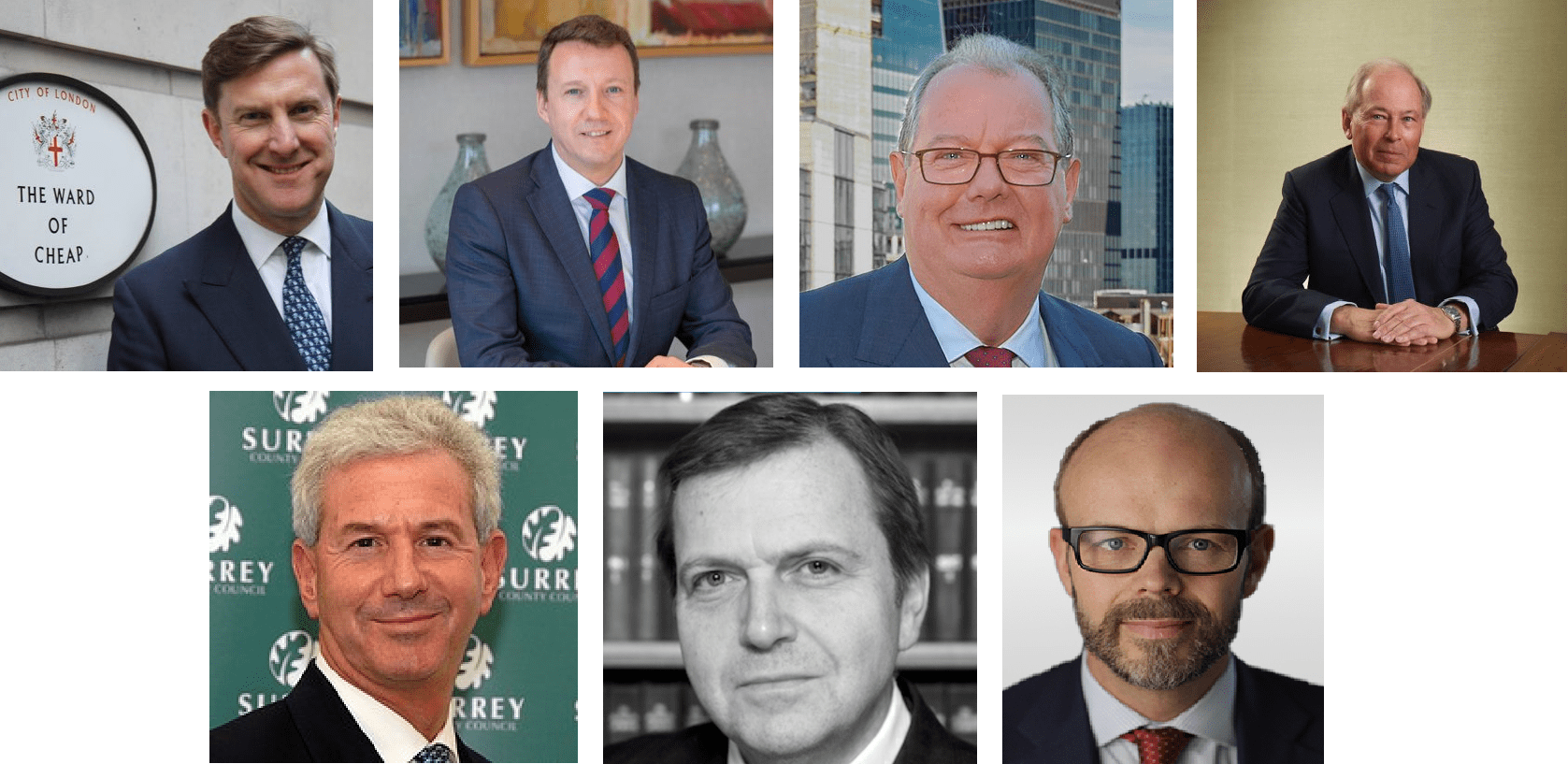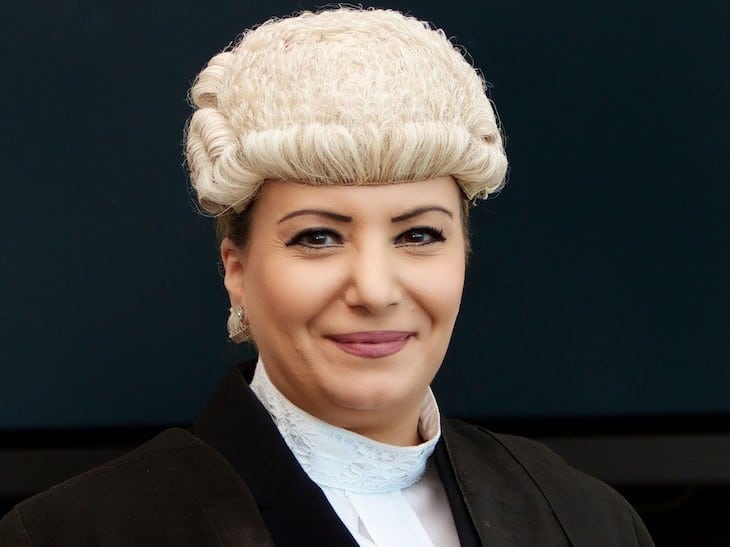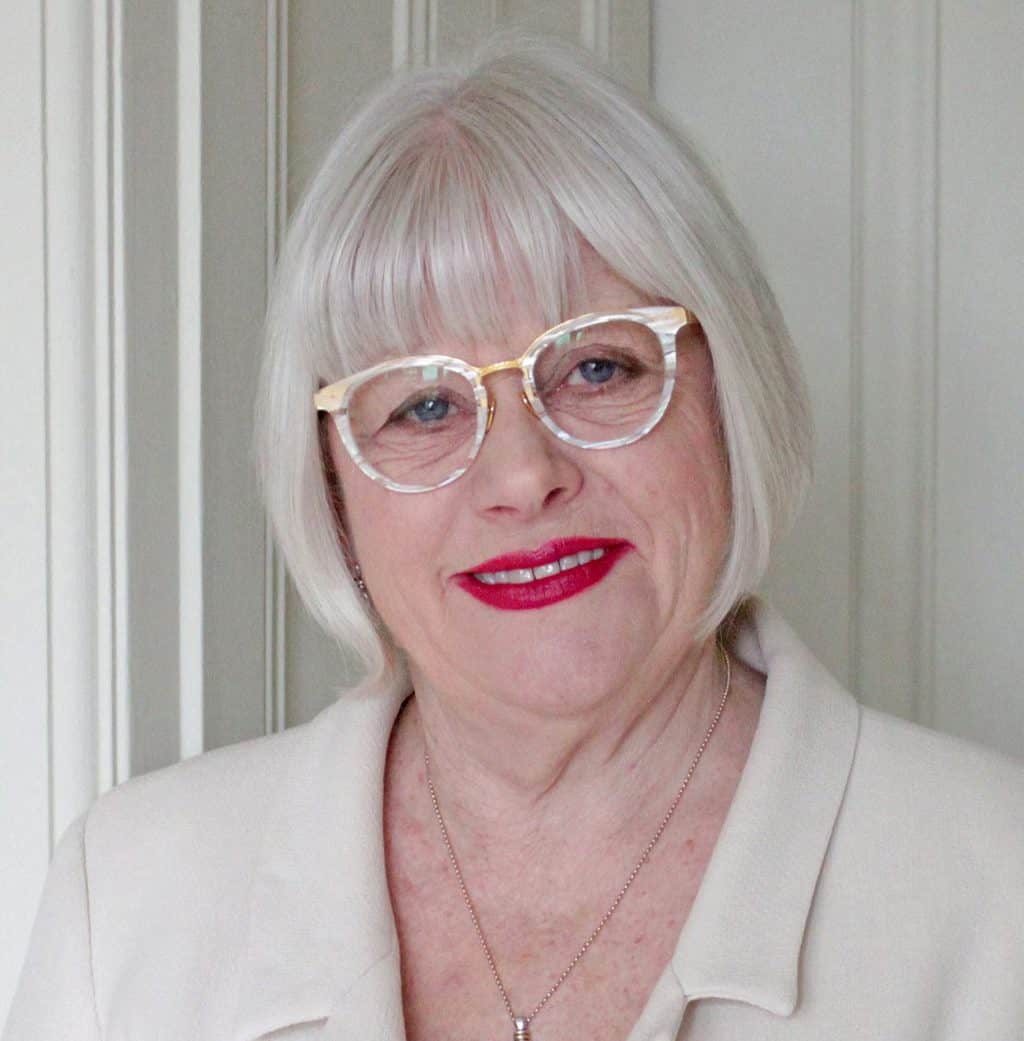THE City of London will elect two new aldermen over the coming weeks, and the odds are they will both be white and male after nomination documents laid bare what some are calling “a huge diversity problem” among the City’s elected officials.
All seven candidates vying to replace alderman Jeffrey Evans in the Cheap ward are male and Caucasian, according to statement of nomination papers for the ward election on 5 July, drawing criticism from councillors who say the City is not doing enough to encourage women and non-white individuals to stand for election.
Those on the ballot paper for Cheap are Timothy Becker, Andrew Heath-Richardson, Richard Hills, Andrew Marsden, Robert Hughes-Penney, Timothy Haywood and Tony Samuels.

Related: Meet the Cheap ward aldermanic candidates
The Candlewick ward fared slightly better in terms of gender balance, with one woman, Castle Baynard common councillor Emma Edhem, up against Jonathan Bewes, William Charnley and James De Sausmarez to replace outgoing Dame Fiona Woolf. Dame Fiona is one of three current serving female aldermen in a court of 25, while just under a quarter of the City’s common councillors are women.

Related: Female aldermanic candidates pledge to fight for diversity
The naming of the candidates on 12 June sparked a social media stoush amongst current common councillors, with Bishopsgate’s Tom Sleigh tweeting the Cheap list asking: “When will the City start attracting diverse candidates to stand for these seats?”
He wrote: “Just announced: 7 candidates for the Cheap Ward Aldermanic by election. All 7 are white middle aged men. One is a Tory Councillor in Surrey. When will the City start attracting diverse candidates to stand for these seats? @cityoflondon” (sic).
His comments drew support from current aldermanic sheriff Tim Hailes, who tweeted: “when the perception is ‘may the best white, straight (?), middle aged, man’ win then I think it’s a reasonable statement to say that we have a potential issue here”.
Aldermen do not traditionally opine on elections in other Wards. Aldermanic Sheriffs perhaps even less so. But when the perception is “may the best white, straight (?), middle aged, man” win then I think it’s a reasonable statement to say that we have a potential issue here.
— Tim Hailes (@HailesTim) June 12, 2018
But others have labelled Mr Sleigh’s assessment a ‘blunt’ categorisation of the candidates, with Dowgate councillor Mark Wheatley calling for individuals to be judged on their merits, rather than demographics.
“Diversity is important but they are seven individuals keen to serve the City in their own way. As such, they ought not to be ‘categorised’ so bluntly. Let’s hear their diverse views and see how diligently the winner serves @cityoflondon. #Cheap,” he wrote.
Diversity is important but they are seven individuals keen to serve the City in their own way. As such, they ought not to be ‘categorised’ so bluntly. Let’s hear their diverse views and see how diligently the winner serves @cityoflondon. #Cheap
— Mark Wheatley (@MarkinDowgate) June 12, 2018
No mention of quotas (though they have their place in some areas). Not even targets. Just a head-slap at that list of 7 names. We’re starting to look ridiculous
— Tom Sleigh (@tomsleigh) June 13, 2018
Candidates have used the controversy to outline strategies to increase participation of women and people from black, Asian and minority ethnic (BAME) backgrounds.
Richard Hills, an investment banker and non-executive director at JP Morgan, pledged to increase the number of women on the common council to 30% by asking City CEOs to nominate female staff with political aspirations for a mentoring programme in the lead-up to elections.
Tony Samuels, who is a Surrey County councillor, said he would set up a working party to establish a “meritocracy where people of all backgrounds and genders who live and work in the ward can contribute to its future developments”.
Andrew Heath-Richardson, director of development at property company Canary Wharf Group, flagged affordability as a barrier to engagement, claiming the robes and formal wear aldermen are required to purchase when taking office can be as much as £25,000.
“How many people can afford to spend that amount of money when carrying out an unpaid voluntary role?,” he said.
“No special school ties, universities or club membership should be required to even start the process.”
The City is not the only local authority in Britain suffering from a lack of diversity. According to the Local Government Association’s last census of local authority councillors in 2013, 67% of councillors were male, 96% were white, with an average age of just over 60 years old. But it is one of the only councils in Greater London that does not compensate its members for time and expenses incurred while undertaking council duties.
The Corporation is currently reviewing its remuneration for councillors, and there is potential to introduce an expense system to encourage candidates from a greater cross-section of socioeconomic backgrounds to participate.
In May the policy and resources committee established a members diversity working party to help drive information sessions and networking opportunities that will improve diversity on the common council. The working party met this week for the first time, chaired by Mr Sleigh.
A spokesperson for the City Corporation said it was “determined” to improve the diversity of its elected membership.
“The 2017 City elections saw a significant improvement in representation of black, Asian and minority ethnic people on the Court of Common Council as well as an increase in the number of women elected.
“We recognise that there is much more to do and will be taking further steps to encourage a diverse range of candidates for City elections.
“This is a major focus for the City Corporation and will build on initiatives in recent years to engage more people in the City’s democratic processes.”

Gwen Rhys, founder and CEO of professional women’s networking organisation Women in the City and a candidate for next week’s shrieval election, said that while she was “delighted” that diversity had made it on to candidates’ agendas, a review of communication around election positions is key to achieving greater balance.
“My question is how are these vacancies ‘advertised’ in the first place?” she said. “I suspect that much of this communication currently takes place via traditional King Makers.”
Ms Edhem, who is a barrister at No5 chambers and of Turkish heritage, said that that while she ticks the boxes for gender and ethnic diversity she would like to be judged on her expertise for the role and that bringing balance would be “a collateral bonus”.
But she also pointed out comparisons with her own experience on the equality and diversity committee of the Bar Council.
“For many years women simply felt that there was no point in coming to a predominantly male Bar and if they did there was no real scope for progression,” she said.
“What is evident is that as women and general diversity came to seep in, the very fabric and much loved culture of this very British institution was not altered. Instead we brought progression with sensitivity and maintained all that was and is important to the Bar,” she said.
“The City is at the beginning of this journey. Sadly, Cheap will now close the door on progression for the next six to 15 or even 20 years as the electors did not have the option of choice. Candlewick, of course, does have that choice.”
Candlewick voters can cast their ballot between 8am and 8pm at the Church of St Clement Eastcheap, Clements Lane, (Off King William Street) EC4N 7AE
Cheap voters can cast their ballot between 8am and 8pm at the Worshipful Company of Wax Chandlers, Court Room, 6 Gresham Street EC2V 7AD







